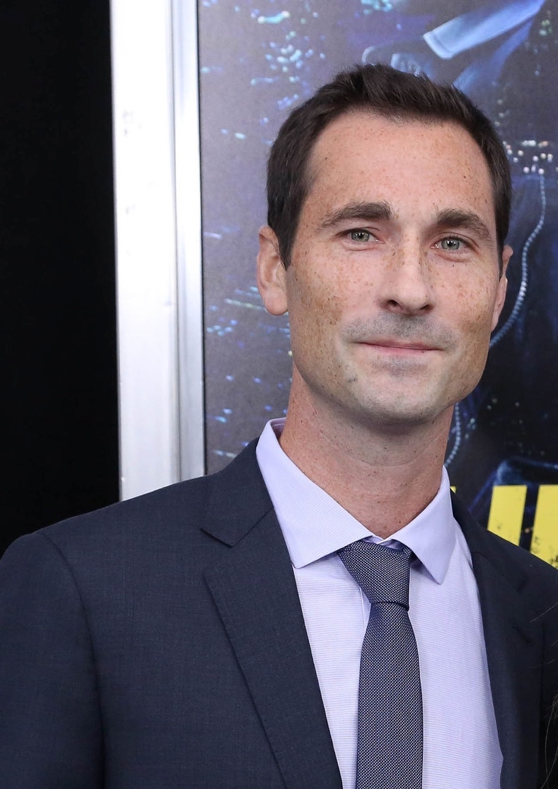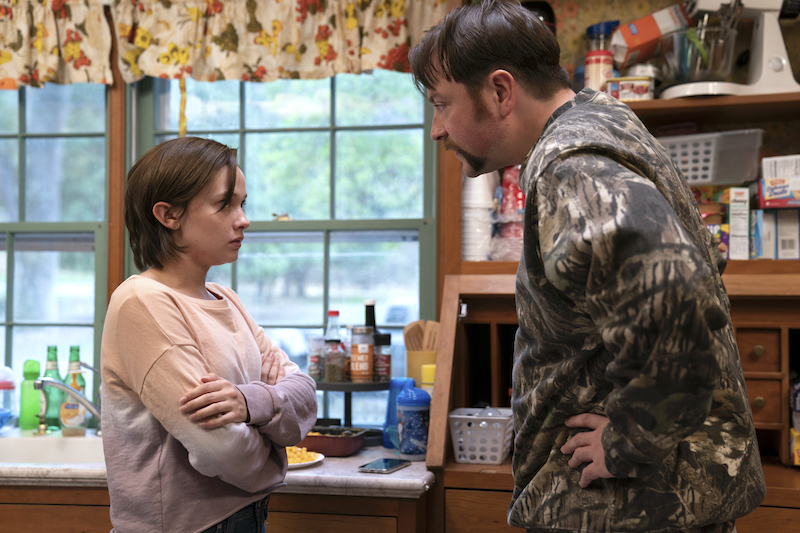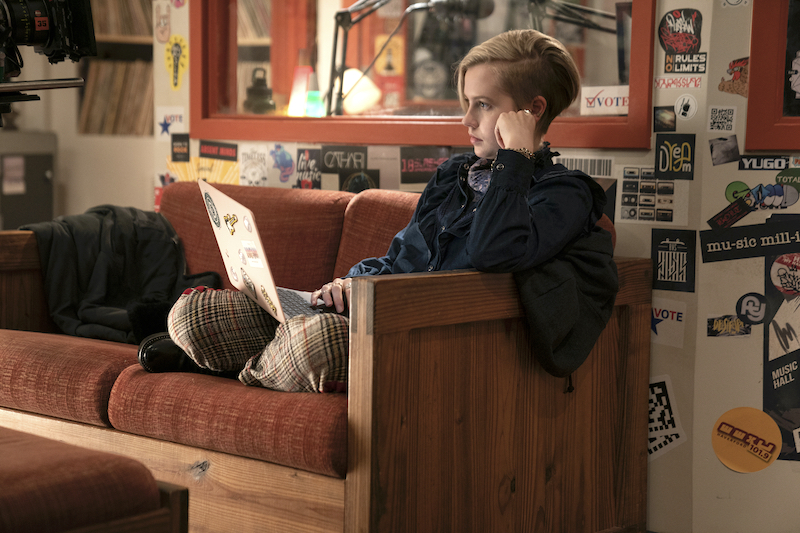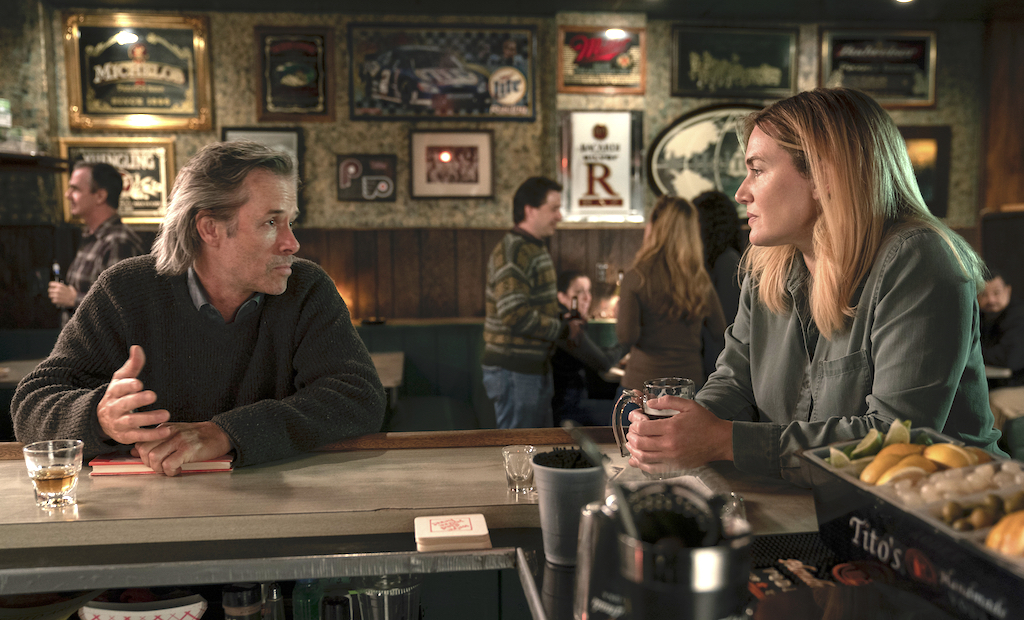“I think my connection to the show was just being able to write about the place I grew up in and the people I grew up with,” declared screenwriter Brad Ingelsby. “The rhythms and rituals of life in a very specific part of the country.”
The part of the country that Ingelsby is describing is a small town in Pennsylvania. The story itself follows the small town life of a detective, Anne-Marie “Mare” Sheehan (Kate Winslet) and a local murder that tortures the town of Easttown.
“How do I tell a story about how I grew up and make it entertaining?” Ingelsby asked himself. “I didn’t grow up with cops and murder investigations, but I did grow up with priests drinking Manhattans at my house and the old glory of basketball teams.”
These rhythms not only make the story feel real, but do so in a way that the 7-episode series almost feels like it doesn’t care that you’re an outsider to the world of Easttown. There’s very little exposition or over-explaining of the community, but instead, it was an invitation to simply dive in and figure out who’s who as the story moves along.

Brad Ingelsby
“That kind of community was interesting and I think it was a chance to talk about how I grew up,” the prolific writer added, who also has screenwriting credits for Out of the Furnace, Run All Night, American Woman, Our Friend, and The Way Back.
Writing Mare of Easttown
The loose idea of Mare, about “the only detective in this little community,” marinated in the writer’s mind for approximately eight months before he placed the metaphorical pen to paper. “Mare was constantly struggling with the personal and professional, having to deal with cases that involved people she knew and grew up with, and how she walked that line.” In an off-hand comment in the show Mare was asked if there was anyone in the town she didn’t know. She replied in the negative.
The cases about a murder and a missing girl came later, but they revolved around Mare, locally known as “Miss Lady Hawk Herself” because she sank a game winning shot in a basketball game in high school. “I built the community, but I didn’t know how the case would be solved. I knew I had watched enough murder mysteries to know that you have to get the ending right. Otherwise, people feel betrayed that they wasted 6, 7, or 8 hours of something that’s not fulfilling.”
As for the ending, Ingelsby said it had to be “emotional, cathartic, and worthy of everybody’s time.” He added, “It took a long time to get the ending right, but once I landed on the big reveal, I knew it made sense thematically. It was both surprising and emotional.”
The Pilot Episode
In the pilot episode, Miss Lady Hawk Herself, viewers learn about a missing girl Katie Bailey (Caitlin Houlihan), a cold case, and a new murder, involving another teen girl, Erin McMenamin (Cailee Spaeny). Ingelsby said he wanted the two mysteries to follow both characters on parallel tracks. The A-plot of the pilot followed Mare about her day-to-day life, while the B-plots followed Erin McMenamin in the lead up to her murder and Katie’s disappearance being almost forgotten. “In my mind, the tension of that structure was how and when the two B-plots would collide.”

Erin McMenamin (Cailee Spaeny) & Kenny McMenamin (Patrick Murney). Photo by Sarah Shatz/HBO
“I didn’t want to tell a story where you open with a dead body and the investigation begins, because that’s not what the show is about. I thought it was important to establish the community of Easttown before the murder,” he continued.
With this in mind, the mystery plot could better resonate emotionally because we needed to get to know Erin, a teenage mother, so we could “experience her life, her hopes, her dreams, her desire to be a mother,” so in the end of the episode, viewers are emotionally attached to this person, rather than see her as just a dead body in a cold open. That was why the audience spent an entire episode with her prior to her death to allow her memory to carry through all seven episodes.
In some ways, Mare isn’t just the protagonist. The show is somewhat of a two-hander, with the second main character being Erin’s memory. “She can’t let it go. In the creek, [Mare] makes a silent vow to get the person who did this to Erin. She felt she owed it to her.”
Creating Detective Mare Sheehan
Aside from Mare’s duty to do her job to the best of her ability, she’s a very flawed character. “I think the interesting thing with Mare is that she’s a woman who is very clearly haunted by the suicide of her son.”
Ingelsby continued, “What was interesting to me was that her way of deferring grief was to throw herself completely into these cases.” Mare is avoiding her personal problems by obsessing over Katie and Erin. These obsessions framed the arc of Mare’s character. “Here’s a woman who has been deferring grief, so when the cases are solved, she’s going to have to confront the thing she’s been avoiding. That was a clear arc in my mind.”
As an investigator, Mare is also someone who approaches situations with empathy, even though she often comes off as cold. “She approaches each situation, not only with the demands of the job, but with having a history with the people involved. That’s what made it such rich soil to play in. She has to constantly walk the link between personal and procedural. Weigh the moral with the legal. That’s a sense of conflict in her life that weighs every action.”
Empathy and Tragedy
“She doesn’t pity herself,” says Ingelsby about creating empathy for Mare. “I think that’s what is so great about her. There’s never a moment where she sits down and pities herself. The audience has seen the tragedies she’s endured and would understand if she ever wallowed in self-pity.”
In this regard, even when Mare does something unthinkable, like planting drugs on her former daughter-in-law Carrie Layden (Sosie Bacon) so the former addict can’t get custody of her grandson, Drew (Izzy King), we still root for Mare. “There’s a quality in her that always has us on her side in some way, and it’s because of the pain she’s hiding.”
In addition to individual actions, Mare’s relationships with her mother Helen Fahey (Jean Smart), a work partner who she’s stuck with Colin Zabel (Evan Peters) and a simmering love interest Richard Ryan (Guy Pearce) are also strained.
The writer’s grandmother was the only girl among four brothers, but she was still the leader of the household. “She was always bossing the boys around. A very independent, tough woman. But she got diagnosed with arthritis later in her life and couldn’t maintain the household, so now she had to rely on people.” This led to the character of Mare’s mother, Helen.
“Helen doesn’t have the physical ravages, but growing up, she was stubborn and didn’t talk about hugs and kisses or feelings. But now, maybe because of Kevin (Mare’s son, played by Cody Kostro), Mare’s softened a little from her upbringing.”
“You put these two women – three generations of women with Siobhan (Mare’s daugher, played by Angourie Rice) – who don’t get along and yet they’re stuck with each other. How are things going to be resolved? It was a relationship born out of history with my own life, to inform a relationship between a mother and daughter.”

Siobhan Sheehan (Angourie Rice). Photo by Sarah Shatz/HBO
In some ways, Mare’s mother represents Mare’s future self, but Mare has a chance to change her ways now, especially when we think of the final few minutes of the series. “My hope is that audiences leave the show thinking Mare has a little more knowledge and a better relationship with Siobhan.”
Easttown as a Character
Ingelsby believes Easttown as a character is just as important as any human character on the show. “I think it informs every relationship and how Mare has arrived at this point in her life. It’s vital.”
“Mare has allowed Easttown to mold her in a way, but she’s enjoyed it.” She loves the limelight. In one scene that actually got cut from the show, Mare is speaking to her therapist Eisa Davis (Gayle Graham) who says to Mare, ‘You know, everyone calls you Lady Hawk, but you’ve let them do that. You haven’t shied away from the applause.’”
Ingelsby said the scene came from a quote, which he paraphrased as, “Humans aren’t good at recognizing illusions, especially the flattering ones. We are able to latch on to the illusions we have of ourselves, especially if they paint us in a certain light.”
Mare claims she doesn’t like the applause, but that doesn’t stop her from attending annual events to celebrate her old accomplishment. “What’s so annoying to her when the series starts, is that everyone turns against her because she hasn’t solved the Katie Bailey case despite being Miss Lady Hawk.”
“There’s something dangerous about Mare, because she does want to solve Erin’s case, but she also wants to be a hero. That’s what drives her to keep working when the Chief tells her not to. It’s what makes her be morally questionable, because, you wonder, did she do the right thing?”

